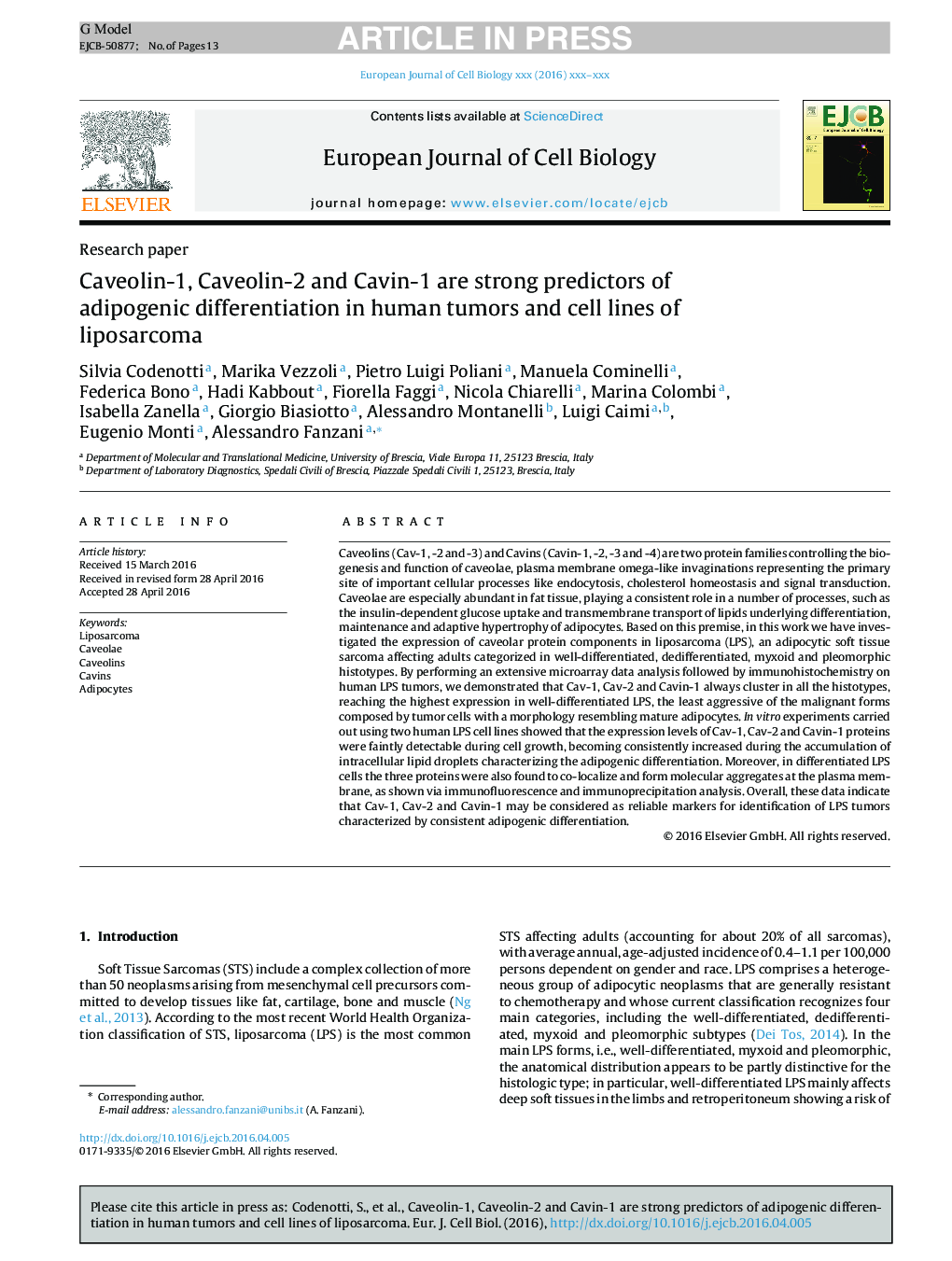| Article ID | Journal | Published Year | Pages | File Type |
|---|---|---|---|---|
| 8469744 | European Journal of Cell Biology | 2016 | 13 Pages |
Abstract
Caveolins (Cav-1, -2 and -3) and Cavins (Cavin-1, -2, -3 and -4) are two protein families controlling the biogenesis and function of caveolae, plasma membrane omega-like invaginations representing the primary site of important cellular processes like endocytosis, cholesterol homeostasis and signal transduction. Caveolae are especially abundant in fat tissue, playing a consistent role in a number of processes, such as the insulin-dependent glucose uptake and transmembrane transport of lipids underlying differentiation, maintenance and adaptive hypertrophy of adipocytes. Based on this premise, in this work we have investigated the expression of caveolar protein components in liposarcoma (LPS), an adipocytic soft tissue sarcoma affecting adults categorized in well-differentiated, dedifferentiated, myxoid and pleomorphic histotypes. By performing an extensive microarray data analysis followed by immunohistochemistry on human LPS tumors, we demonstrated that Cav-1, Cav-2 and Cavin-1 always cluster in all the histotypes, reaching the highest expression in well-differentiated LPS, the least aggressive of the malignant forms composed by tumor cells with a morphology resembling mature adipocytes. In vitro experiments carried out using two human LPS cell lines showed that the expression levels of Cav-1, Cav-2 and Cavin-1 proteins were faintly detectable during cell growth, becoming consistently increased during the accumulation of intracellular lipid droplets characterizing the adipogenic differentiation. Moreover, in differentiated LPS cells the three proteins were also found to co-localize and form molecular aggregates at the plasma membrane, as shown via immunofluorescence and immunoprecipitation analysis. Overall, these data indicate that Cav-1, Cav-2 and Cavin-1 may be considered as reliable markers for identification of LPS tumors characterized by consistent adipogenic differentiation.
Related Topics
Life Sciences
Agricultural and Biological Sciences
Plant Science
Authors
Silvia Codenotti, Marika Vezzoli, Pietro Luigi Poliani, Manuela Cominelli, Federica Bono, Hadi Kabbout, Fiorella Faggi, Nicola Chiarelli, Marina Colombi, Isabella Zanella, Giorgio Biasiotto, Alessandro Montanelli, Luigi Caimi, Eugenio Monti,
